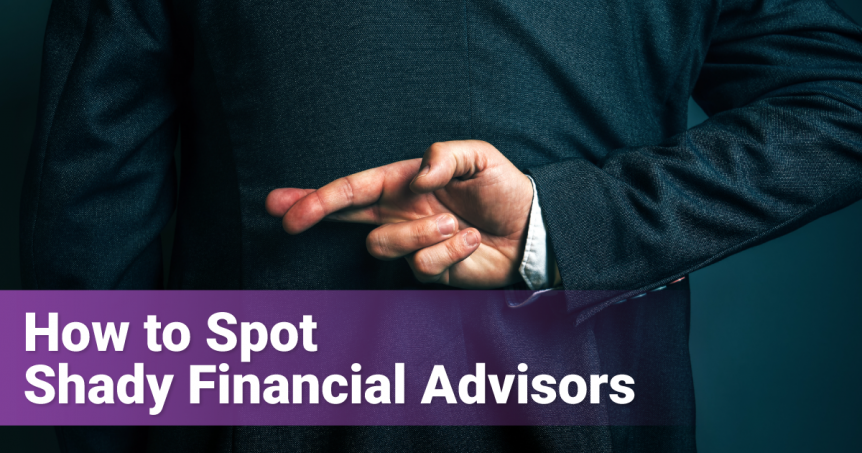News headlines of the past tell a cautionary tale of how critical it is to be careful in choosing your financial advisor.
In this article series, we will explore 7 red flags you can use to identify the types of financial advisors you should avoid at all costs. We will also provide guide steps to help you choose the very best financial professionals for your investment and money management needs.
#1: They’re not a registered professional
Right off the bat, verify (don’t assume) that the financial advisor you’re considering is a registered advisor with either state or federal regulatory agencies.
Being a registered advisor means one has received testing – thus education and training – background checks, and periodic reviews. This doesn’t mean they’re the best option, but it does mean they are a legitimate, registered financial advisor.
Checking into this is important because just about anyone can claim to be an investment expert. You’ll find a lot self-proclaimed experts on TV or radio offering advice to a sure-fire path to easy riches. But these people can be pretty dangerous to you financial well-being.
In fact, in Texas, almost all of the criminal actions undertaken by the state securities board involve an unregistered person. That’s why ensuring your advisory candidate is legitimately registered is the foundation of your search for the best financial advisor.
Significance of a Fiduciary
You should understand the meaning and significance of the word ‘fiduciary.’ A fiduciary is responsible for managing the assets of clients in good faith and with each client’s best interest in mind – NOT the fiduciary’s.
Stock brokers are not required to be fiduciaries while registered investment advisors are. What this means is that a broker may legally make investment recommendations to you that pay them much higher commissions and cost you more, even if there’s an identical investment option that would save you money in fees. In this scenario, investment ‘suitability’ is important in making recommendations but that doesn’t mean they’re required to choose the option that’s in your best interest.
On the other hand, a fiduciary makes recommendations based on suitability and your best interest. Fiduciaries act with prudence; that is, with the skill, diligence and good judgment of a professional.
In other words, if a fiduciary recommends an option to you, the recommendation will be the option that saves you the most money and suits your needs, even if the fiduciary misses out on a higher commission/fee.
For example, Snider Advisors is a fiduciary, which is why we train investors to self-manage their own portfolio. This helps clients save the maximum amount of money in fees, and instead, put that money to work in the market.
A fiduciary is obligated to provide complete and accurate disclosure of all facts so that a client cannot be misled. As much as possible, a fiduciary is required to avoid any conflicts of interest – and if there is an unavoidable conflict of interest – they must fully disclose it. An added benefit of working with a registered fiduciary is that every agreement between you and the fiduciary must be in writing.
By looking at the difference between brokers and investment advisors, you can certainly see why the culture of some brokerage firms is one that celebrates selling investment products with high fees while the culture of a fiduciary rewards the overall well-being of clients’ finances.
Action Steps to Selecting a Financial Advisor
There are times when choosing a broker may be the best choice for you. The important thing is that you ask the right questions and be a well-informed client.
- Whether it’s a broker, financial advisor, or any other profession, you should ask about their qualifications, training and experience. If they won’t tell you, that’s a giant red flag.
- You should ask questions about the fees associated with any investments they recommend and ask for the fees of similar options. If you see them recommending the investment with higher fees when there’s an identical option with lower fees, that’s a giant red flag.
- If they advertise or make claims of amazing or unusual returns (think Bernie Madoff’s suspiciously consistent returns despite the market’s high volatility at the time) that’s a giant red flag.
- If their only proof of success is anecdotal evidence or testimonials from a select group of clients, that’s another giant red flag. Registered investment advisors are prohibited from using client testimonials or discussing their own personal performance.
- When you’re working with an advisor, you should always ask them for their investment philosophy. This will help you to understand the principles they use to invest – and then you should ask them exactly how those principles correlate to their investment strategies and practices.
Use this information to form your checklist of questions to ask the financial advisor you’re considering so you select the best financial advisor that suits your needs.
